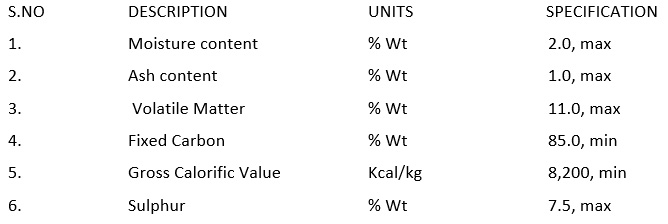Petroleum Coke

Petroleum coke, abbreviated coke or petcoke, is a final carbon-rich solid material that derives from oil refining, and is one type of the group of fuels referred to as cokes. Petcoke is the coke that, in particular, derives from a final cracking process—a thermo-based chemical engineering process that splits long chain hydrocarbons of petroleum into shorter chains—that takes place in units termed coker units. (Other types of coke are derived from coal.) Stated succinctly, coke is the "carbonization product of high-boiling hydrocarbon fractions obtained in petroleum processing (heavy residues)". In petroleum coker units, residual oils from other distillation processes used in petroleum refining are treated at a high temperature and pressure leaving the petcoke after driving off gases and volatiles, and separating off remaining light and heavy oils. These processes are termed "coking processes", and most typically employ chemical engineering plant operations for the specific process of delayed coking.
This coke can either be fuel grade (high in sulfur and metals) or anode grade (low in sulfur and metals). The raw coke directly out of the coker is often referred to as green coke. In this context, "green" means unprocessed. The further processing of green coke by calcining in a rotary kiln removes residual volatile hydrocarbons from the coke. The calcined petroleum coke can be further processed in an anode baking oven to produce anode coke of the desired shape and physical properties. The anodes are mainly used in the aluminium and steel industry.
Petcoke is over 80% carbon and emits 5% to 10% more carbon dioxide (CO2) than coal on a per-unit-of-energy basis when it is burned. As petcoke has a higher energy content, petcoke emits between 30 and 80 percent more CO2 than coal per unit of weight. The difference between coal and coke in CO2 production per unit of energy produced depends upon the moisture in the coal, which increases the CO2 per unit of energy – heat of combustion – and on the volatile hydrocarbons in coal and coke, which decrease the CO2 per unit of energy.
Specification:

Calcined Petroleum Coke
Petroleum Coke manufactured by delayed coking of residues obtained from crude oil distillation units of Oil Refineries is called Green or Raw Petroleum Coke. The said Green or Raw Petroleum Coke calcined at a temperature 12000 centigrade to 13000 centigrade is known as Calcined Petroleum Coke. Calcined Petroleum Coke is extensively used for melting purpose of Alumina in Aluminium industry, as a carbon raiser while making Special High Carbon Steel in Foundries, as a conductive backfill in ground Electrode station and in manufacture of various Carbon and Graphite Products.
Specification of Calcined Petroleum Coke :

Note: All Mesh Size Available
Packing : In 25/50kg PP bags Or in Jumbo Bags packing as per Customer’s requirement.
Application of Petroleum coke : We specialize in supplying Calcined Petroleum Coke to Steel, Foundries, Friction Material, Graphite Electrode manufacturers and for cathodic protection.

